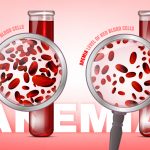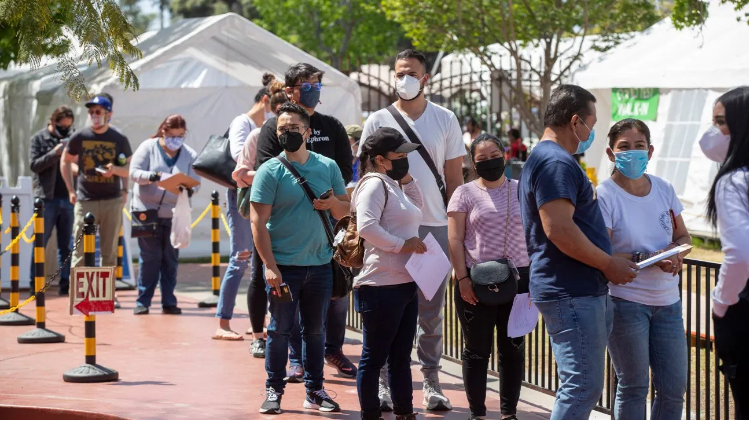- To make the vaccination process simpler and faster, researchers are working to develop the next generation of COVID-19 vaccines, namely in pill and nasal spray forms.
- Historically other vaccines, such as those for polio, started as injections but oral vaccines were developed.
- More research is needed to find out if these oral or nasal spray vaccines will be as effective as injectable vaccines.
The three COVID-19 vaccines authorized in the United States may be key to helping get the pandemic under control in the near future.
But while these vaccines, released by Pfizer-BioNTech, Johnson & Johnson, and Moderna, are effective, they do come with some challenges.
All require getting an injection, which can make people with needle phobias extremely hesitant to get the shot. Additionally, side effects including feelings of fever, flu-like symptoms, and arm soreness are common with all three vaccines.
The Johnson & Johnson vaccine has been paused as officials investigate extremely rare blood clots that may be associated with the vaccine.
To make the vaccination process simpler and faster, researchers are working to develop the next generation of COVID-19 vaccines, namely in pill and nasal spray forms.
These next-generation vaccines may make it easier to eradicate the coronavirus from the globe.
What we know about the next generation of COVID-19 vaccines so far
“At this time, SARS-CoV-2 vaccines are injectable. Several vaccine manufacturers have started initial development of a nasal vaccine spray,” said Dr. Javeed Siddiqui, co-founder and chief medical officer at TeleMed2U.
“Nasal spray vaccine could be available as soon as 2022, however this is highly variable based on clinical efficacy and vaccine effectiveness in clinical trials,” he said.
Siddiqui added that future vaccine generations are anticipated to include activity against variants of the virus.
According to FasterCures, a center of the Milken Institute that’s currently tracking the development of COVID-19 vaccines, five companies are developing oral vaccines. Two of these companies have moved on to phase 1 clinical trials.
Of the 13 companies working on a nasal spray vaccine, five are in early clinical trials.
“It’s exciting. It speaks to the innovation that scientists, government, and academia are working to improve what we have,” said Dr. William Schaffner, an infectious disease expert at Vanderbilt University and the medical director for the National Foundation for Infectious Diseases.
“What we know from the current vaccines are which parts of the virus are important in order to stimulate an immune response,” he said.
How the original COVID-19 vaccines work
According to the Centers for Disease Control and Prevention (CDC)Trusted Source, the current COVID-19 vaccines help our bodies develop immunity by supplying them with “memory” T-lymphocytes and B-lymphocytes. These white blood cells remember how to fight the coronavirus, should it enter your body in the future.
Currently, three types of COVID-19 vaccines are authorized in the United States, although the Johnson & Johnson vaccine has been temporarily paused as it potentially triggered a rare blood clot in a very small percentage of the population.
One vaccine is the mRNA vaccine. It contains material from the virus, which instructs our cells to make a protein unique to the coronavirus to fight it in the future.
Another vaccine is the protein subunit vaccine. It includes harmless proteins of the virus instead of the entire germ. After vaccination, the body recognizes the protein and will remember how to fight it.
The third type is the vector vaccine. It contains a modified version of a different virus. Inside the shell of the modified virus is material from the coronavirus. Once the viral vector is in the cell, the cells produce a protein and then copy it, which prompts our bodies to build the T- and B-lymphocytes that can protect against the coronavirus.
How a nasal spray or pill could protect you from COVID-19
ImmunityBio, one of the companies working to develop other versions of the COVID-19 vaccine including a capsule and a dissolvable tablet, has been authorized by the FDA to expand a phase 1 clinical trial.
The three injectable vaccines (Pfizer-BioNTech, Moderna, and Johnson & Johnson) prompt the immune response to generate antibodies that fight against the coronavirus spike protein.
The ImmunityBio vaccine, however, targets both the mutation-prone outer spike protein and the more stable inner protein, which activates antibodies, memory B cells, and T cells against the coronavirus.
The goal is to create longer-term protection as well as provide protection from variants.
Altimmune is another company working on a next-generation vaccine. This one would be a nasal spray.
A nasal delivery method is designed to produce an immune response at the point where the virus enters the body, causing mucosal immunity in the nasal cavity.
Called AdCOVID, the nasal spray vaccine is designed to stimulate an immune response including both antibody and T-cell responses in the nasal cavity.
What will the next generation of vaccines mean for the future of COVID-19?
At this point it’s too early to know whether these vaccines will be as effective as the first round of injectable vaccines.
But past cases have shown that an original injectable vaccine can be followed by oral versions.
In 1953 the polio vaccine was introduced as an injectable. Nine years later an oral version was developed, which essentially wiped the poliovirus from the planet.
“We’re right on the edge of eliminating [polio] from the world. We’re doing something similar with an oral vaccine against rotavirus. We had a nasal flu vaccine, although that had its ups and downs,” Schaffner said. “It’s not a straight line here, but there are precedents.”
New vaccines that are easier to administer and target virus variants can only mean there’s potential for eradication of the coronavirus, or at least an easier way to prevent infection or lessen its effects.
“If you could deliver vaccines by an effective nasal spray or a pill, you could deliver vaccines safely to a huge number of people very quickly. You won’t need to have trained people to give injections. All issues of using needles and syringes safely would disappear,” Schaffner said.
Being able to store the vaccine at room temperature would also make it much easier to administer.






